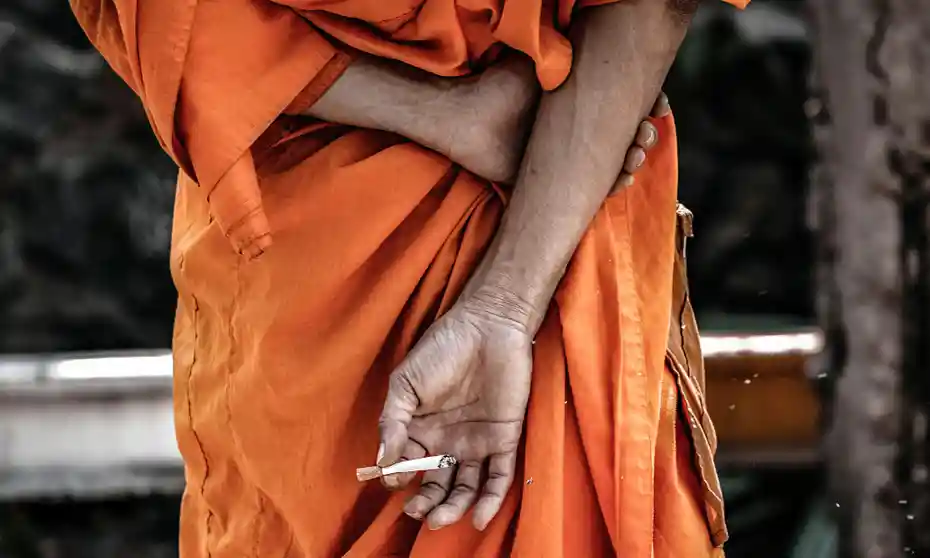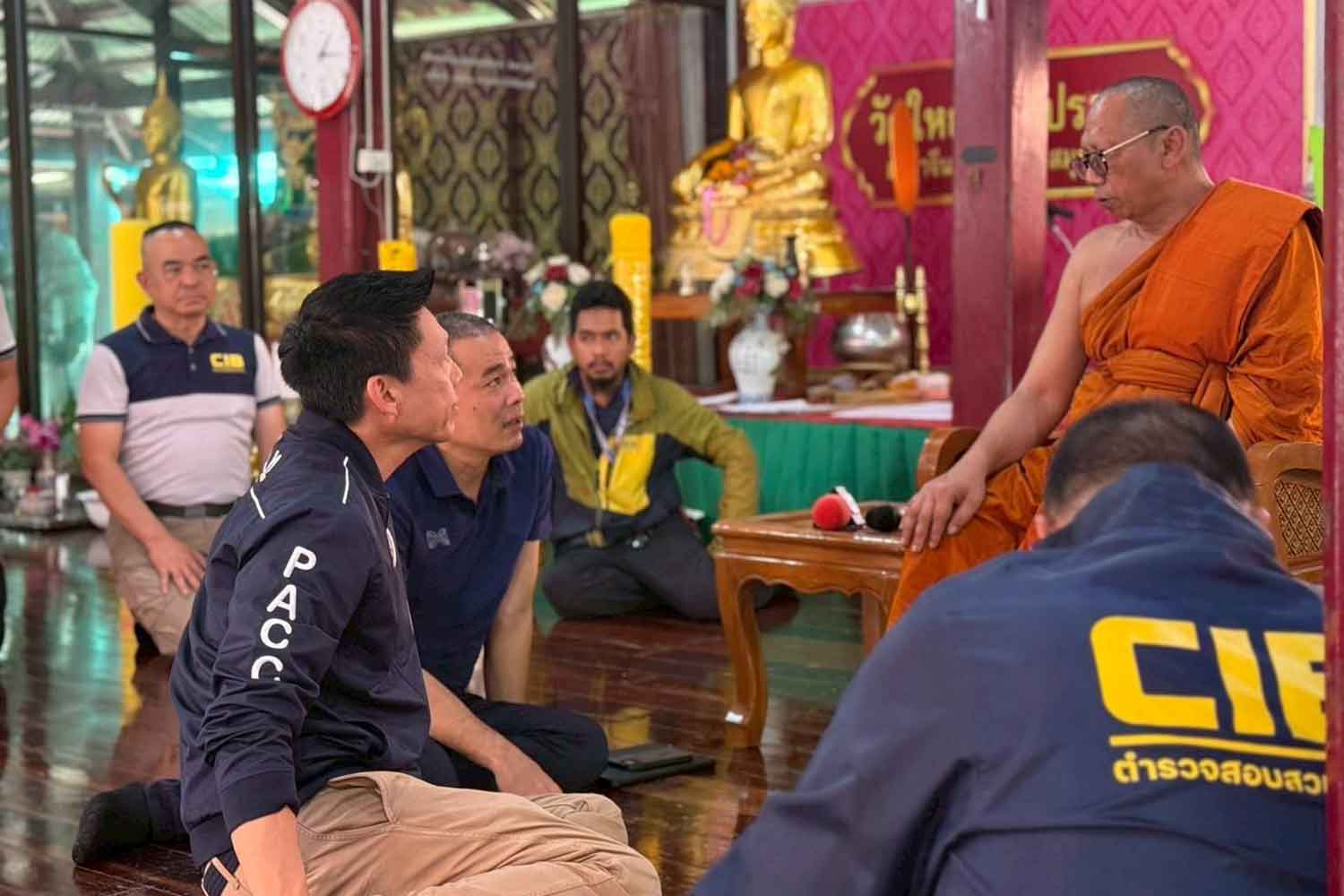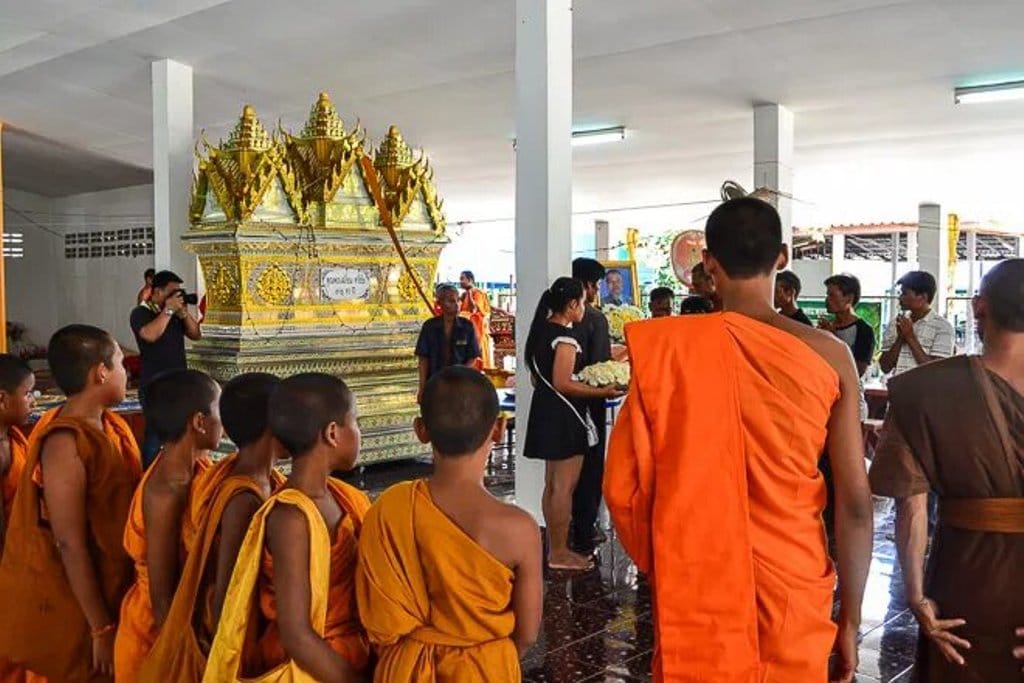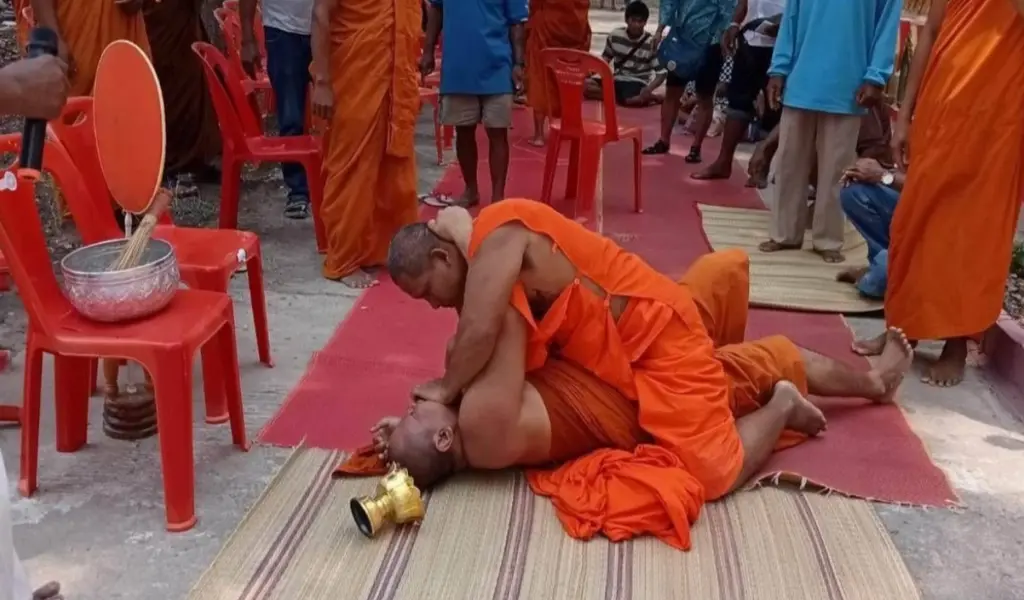BANGKOK – Thailand’s Buddhist monkhood, known as the Sangha, is a long-standing part of the country’s culture, often highly respected by the public. However, recent reports of well-known Buddhist monks involved in scandals with a 35-year-old woman have damaged the reputation of the clergy.
The most recent incident centres on a senior monk accused of stealing hundreds of millions in temple funds and having an affair. This has left many Thai Buddhists worried about the direction of their faith.
Public concern has grown about sex and money scandals within temples. Now, there is strong support for new laws to hold both misbehaving monks and their associates accountable.
Kijmanoch “Kru Lilly” Rojanasupya, a well-known transgender Thai language tutor, supports calls for legal action. She believes a clear law is needed to promote honesty in temple management and to address both monks and laypeople who break the rules.
She admitted to feeling upset about news of monastic wrongdoing. Despite this, she believes faith in core Buddhist teachings and the Buddha remains firm, even if trust in monks has weakened.
Kru Lilly, who started Baan Pootmontha meditation centre in Nakhon Nayok, worried these scandals may put people off from visiting temples or taking part in merit-making. She fears the image of Buddhism is being badly damaged.

Bad Behaviour of Monks Must Have Consequences
A National Institute of Development Administration (NIDA) survey called “Crisis in Buddhism” captured the public’s response. Most people felt that some monks had broken monastic rules and deserved to be punished. The survey spoke with 1,310 Buddhists aged 18 and above from every region during mid-July.
Three-quarters of those polled said some monks care more about pleasure and comfort than their religious duties. The public linked bad behaviour in monks to issues like drug and alcohol use, gambling and sexual relationships. Almost half felt monks get distracted by money, praise and social status, and many blamed rising materialism in and around temples.
Four in ten respondents believed some people join the monkhood purely for financial gain.
Pattama, a 45-year-old civil servant, pointed out that being a monk provides good food, payments for rituals and monthly salaries, which aren’t taxed. Monks with teaching roles earn even more. She thinks easy access to money tempts some men into the monkhood.
Concerns about temple finances and management also stood out, with nearly a third saying temples now focus too much on money and over a quarter noting a lack of clear accounting.

Confidence in the Monkhood Diminishing
Pattama herself prefers to give her donations to hospitals, charities or those in need, as she doubts where temple donations really go. She recalled donating for a pavilion that never got built, despite promises.
Some respondents also criticized religious bodies meant to manage monks, calling them weak and unable to control or correct bad behaviour. Others mentioned that more laypeople seem to encourage monks to act wrongly, helping foster problems within the monkhood.
Even with all these worries, faith in Buddhism stayed strong for most people. About two-thirds said their faith was unchanged, while a third admitted it had been shaken.
However, when it comes to trust in the monkhood, over half said their confidence had dropped.
Tarada, 72, still holds onto her beliefs, urging others to follow Buddhist teachings and keep practising. She sees this crisis as a turning point. She said, “There are good and bad monks, just as in life. Let their actions be their own. Don’t let others’ mistakes stop you from doing what’s right.”
Tarada also mentioned that some monks claim to predict lottery numbers or claim they possess special powers, using these claims for personal gain. She sees some temples as more like businesses than places of worship.
After recent scandals, scholars and the public have been calling for reform to help win back trust. Most people back rules that punish misconduct among both monks and laypeople.

Rebuilding Trust in Buddhist Institutions
A poll found overwhelming support for bringing in penalties. Over 94% felt monks who broke the rules should be punished, and 93% said the same for those who had sex with monks or novices.
Kru Lilly recommended that any law to protect Buddhism needs clear penalties for those who harm the religion’s reputation. She said punishment should serve to protect the teacher’s dignity, not simply to shame people. Any law, she added, must avoid harming religious freedom or causing spiritual abuse in the monkhood.
Mental health specialists also advise the public to keep their faith steady. Dr Kittisak Aksornwong from the Department of Mental Health remarked that religion helps form moral values and offers emotional support.
He encourages people to read the news carefully, to avoid feeling overwhelmed or anxious, and to see Buddhism as a source of comfort.
Dr Chumphot Phromsida, the Department of Mental Health deputy director general, added that having faith supports well-being. Research shows religious belief can lower stress and reduce depression.
The future of Thailand’s monkhood may depend on stronger rules and better transparency, but most people are holding on to their core beliefs even as they seek change.














